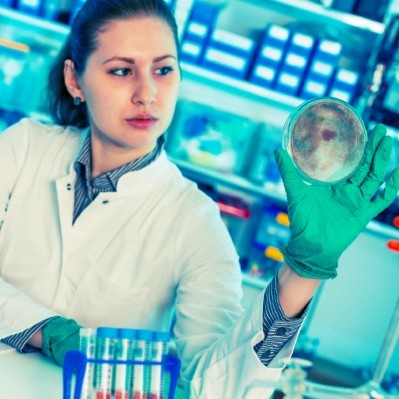US survey reveals most Americans unaware of antibiotics in meat
has revealed that almost three quarters of Americans are concerned
about the presence of antibiotics in meat production, yet less than
half are aware that the meat they buy is commonly raised on feed
that contains antibiotics.
A US survey, sponsored by a leading organic produce supermarket, has revealed that almost three quarters (74 per cent) of Americans are concerned about the presence of antibiotics in meat production, yet less than half (48 per cent) are aware that the meat they buy is commonly raised on feed that contains antibiotics.
The survey report went on to highlight that only 27 per cent of those surveyed are aware of the scientific dialogue documenting problems caused by overuse of antibiotics in animals raised for food. Once they learn of the reports showing a connection between the overuse of antibiotics in animal feed and its effect on humans, the majority (59 per cent) has a high desire to avoid these products and want meat and poultry raised without such antibiotics, the report reveals.
The survey of 1,000 Americans was conducted by Synovate (formerly Market Facts) in spring 2003, and was commissioned by Whole Foods Market, the largest natural and organic foods supermarket in the US. The market research was said to be representative of the general United States adult population and has a margin of error of +/- 3.1 per cent. The results of the survey were further discussed among industry experts gathered in New York City at the Natural Meat - Raised to Taste Better roundtable to address the current state of natural beef and poultry, consumer concerns, antibiotic use and humane treatment of animals.
"Antibiotic medicines are losing effectiveness on humans due to their increased use in animal feed," said Margaret Mellon, Ph.D, JD, director of the food and environment programme for the Union of Concerned Scientists. "Animals raised in natural environments rarely require the use of antibiotics. Americans who choose meat produced this way are making conscious decisions to ensure that antibiotics will still be working when they or their family need them."
The Union of Concerned Scientists estimates that 70 per cent of all antibiotics in the United States are now fed to animals raised for human consumption in order to hasten the animals' growth or prevent illness amid crowded, unsanitary conditions on factory farms.
"The survey released today indicates Americans' strong desire to buy 'natural' meat. Yet, only one per cent of the total beef and poultry sales in the United States is considered 'natural,' meaning it comes from animals raised without antibiotics throughout their lifecycle," said David Smith, vice president of marketing, Whole Foods Market. "The major concern about antibiotic usage and the low awareness of its prevalence in meat production indicates a significant demand for antibiotic-free, natural meat once consumers become educated about the issue."
In the US the use of antibiotics in food animals has attracted the attention of Congress. Senator Ted Kennedy and Representative Sherrod Brown (OH) plan to re-introduce bills soon to phase out the routine use of medically important antibiotics in poultry and livestock. Similar legislation introduced in the last Congress was endorsed by over 170 groups, including the American Medical Association.
Current EC legislation in Europe largely outlaws the use of antibiotics in animal feed as a growth stimulant. In Denmark a complete ban on antibiotics, except for the treatment of medical conditions, is said to have been successfully implemented and could well prove to have a strong influence on future EC legislation.At the end of last year the EC voted to approve the adoption of the Keppelhoff-Wiechert report on additives for use in animal nutrition. Commissioner David Byrne said at the time that he saw the move as a step towards the abolition of the European Union's drive to phase out antibiotics and other potentially harmful substances in animal feed. Legislation is now expected to phase out antibiotics as growth promoters in Europe by 2005.
Defining "Natural Meat"
In the US legislation is more liberal. There beef and poultry are not currently required to bear labels that clearly explain the presence of or use of antibiotics in feed - even the Department of Agriculture (USDA) rules for meat labelled natural do not require all antibiotics be eliminated. According to the USDA, natural may be used on the label when products contain "no artificial ingredients and are no more than minimally processed.
"Our definition of natural meat means that it was raised without any antibiotics, added growth hormones, or animal byproducts in its feed," said Margaret Wittenberg, vice president, governmental and public affairs, Whole Foods Market. "We want to educate consumers that alternative meat products that have been raised without antibiotics or added growth hormones are available. Whole Foods Market believes truly natural meats taste better, and they help avoid the health risk of developing antibiotic resistance. Our standards also include provisions for the humane rearing and slaughter of animals."
According to the Whole Foods Market survey, nearly eight in ten (78 per cent) Americans believe it is important for standards to be in place to more clearly define natural meat that include: meat and poultry raised without antibiotics; meat raised without added growth hormones; and animals raised and processed using humane methods. In addition, almost three-quarters (73 per cent) of Americans believe all meat and poultry products should conform to a regulated standard reflecting this definition.
Overall, four out of five Americans (81 per cent) have either bought beef and chicken that was not raised on feed with antibiotics or would like to buy it.
Founded in 1980 in Austin, Texas, Whole Foods Market is the world's largest natural and organic foods supermarket. In fiscal year 2002, the company had sales of $2.7 billion and currently has 143 stores in the United States and Canada.







